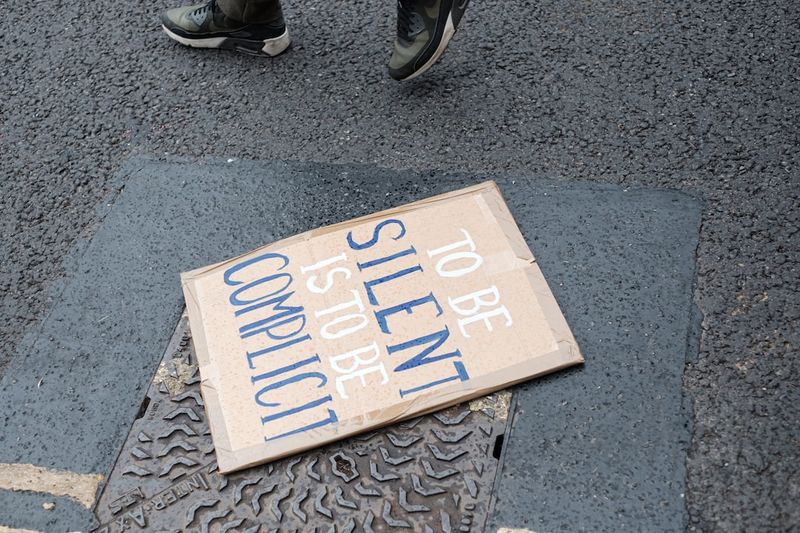Table of Contents
Xenophobia Rears its Ugly Head in South Africa
Introduction
South Africa has long grappled with the issue of xenophobia, particularly directed towards foreign nationals from African and Asian countries. Recently, the rise of Operation Dudula, an anti-immigrant vigilante group, has shed light on the escalating discrimination and violence faced by foreign nationals in the country. A recent documentary by BBC Africa Eye titled “Fear and Loathing in South Africa” investigates the rise of xenophobia and the dangerous rhetoric propagated by Operation Dudula. The documentary highlights the need for South African authorities to address this issue, promote inclusivity, and safeguard the well-being of all individuals within their borders.
The Rise of Operation Dudula
Operation Dudula was established in 2021 by South African youth activists in an effort to combat crime and drug use within Gauteng province’s communities. However, it has since morphed into an anti-immigrant movement, advocating for the mass deportation of undocumented migrants and harassing foreign nationals. The movement’s name, derived from the isiZulu word for “to push out,” clearly signifies its aim to forcibly remove foreigners from South Africa.
Root Causes and Scapegoating
Operation Dudula members scapegoat foreign nationals, blaming them for South Africa’s economic hardships and the challenges faced in delivering essential services. However, it is important to recognize that attributing these issues solely to immigrants is misguided. Economic hardships, crime, and social challenges are multifaceted problems that require comprehensive solutions. Scapegoating and targeting vulnerable populations only serves to deepen division and hamper progress.
Xenophobia and the 2024 General Elections
A concerning trend highlighted by the documentary is the rise of anti-immigrant hate speech in the leadup to the 2024 general elections in South Africa. Operation Dudula has announced its intention to register as a political party and contest the elections. This indicates that the issue of xenophobia is not only a social problem but has also become politicized. Addressing xenophobia must be a priority for political leaders and authorities to prevent further polarization and dangerous rhetoric.
South Africa’s Constitutional Obligations
South Africa’s constitution protects the rights of both citizens and noncitizens, affirming their right to freedom, security, and protection from violence. It is imperative for the authorities in South Africa to reaffirm these constitutional values and openly condemn xenophobia. The government should hold accountable those responsible for attacks and abuses against foreign nationals, while actively promoting inclusivity and social cohesion.
Challenges of Basic Service Provision and Inequality
While addressing xenophobia is essential, it is vital not to lose sight of the underlying challenges that lead to economic hardships, inequality, poverty, and unemployment. South Africa faces significant social and economic disparities that require comprehensive solutions. Investments in education, job creation, and equitable resource distribution are crucial to tackle these issues and foster a more inclusive and prosperous society.
Conclusion
The rise of xenophobia in South Africa, as exemplified by the actions of Operation Dudula, is a deeply troubling development. Discrimination and violence against foreign nationals undermine the values of inclusivity and social cohesion that South Africa should strive to uphold. It is imperative for the authorities to address xenophobia, condemn hate speech, and promote accountability for acts of violence and harassment. Additionally, addressing the root causes of economic hardships and inequality requires comprehensive and nuanced solutions. Only through collective efforts can South Africa forge a path towards a more equitable and tolerant society.

<< photo by Ehimetalor Akhere Unuabona >>
The image is for illustrative purposes only and does not depict the actual situation.
You might want to read !
- The Ethical Sting: Shipping Firms Reaping Rewards Amid Labor Exploitation in Bangladesh
- The Rise of Post-GDP Societies: Embracing Alternatives for a Sustainable Future
- Humanitarian Crisis in Haiti Calls for Suspension of Deportation Flights
- Solution or Stagnation: The Uncertainty Surrounding Lebanon’s New School Year
- Protecting Vulnerable Communities: Cyprus Authorities Must Take Action Against Racist Attacks
- South Africa’s Fire Tragedy Exposes Deep-Seated Issues: A Call for Action.
- Amnesty International’s Involvement in Putin Arrest Warrant Case in South Africa
- Neglected Elders: South Africa’s Crisis in Providing Basic Care and Support
- Dominican Republic’s Racist Treatment: Upholding the Right to Nationality
- Greenpeace Hails Brazil’s Climate Target Correction as a Crucial Step Forward
- The Power Divide: Navigating Inequality in Transportation
- EU Commission Should Take Action to Address Tunisia’s Abuses Against Migrants
- The Unsettling Reality: Egypt’s Use of Child Soldiers Draws Stern US Rebuke
- Sri Lanka’s Proposed ‘Truth Commission’ Faces Uphill Battle Against Widespread Abuses
- The changing tide: Mexico’s 12th state decriminalizes abortion